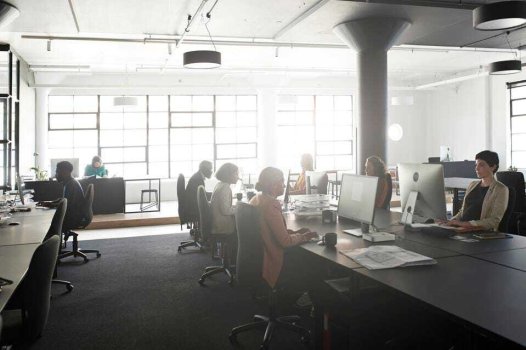The debate about whether artificial intelligence (AI) might displace human workers in the future has been going on for a long time. Technological progress may be perceived as a threat in the context of a one-sided forecast. According to McKinsey, "In about 60 percent of occupations, at least one-third of the constituent activities could be automated, implying substantial workplace transformations and changes for all workers."
But another aspect of this trend should be kept in mind. By the end of 2025, the technological progress may create 12 million jobs more than will presumably be displaced. Influential personalities pour oil on the flame as well by affecting the perception of AI with their grandiose statements (e.g., Elon Musk argued that the perfection of AI will lead to massive unemployment).
Who is not in danger of unemployment in light of the AI/robotics evolution? And why do we even talk about the unemployment conditions of a global staff shortage?
People tend to be afraid of technology that has the potential to change the future of the labor market.
Having served as the financial director of a corporation and being responsible for 19 factories from 2000 to 2003, I chose to implement automation in specific accounting processes. This caused disappointment among many accountants who were afraid of losing their positions. At that time, everyone was sure that the accounting profession would soon disappear since the whole job would be carried out by computers.
Twenty years later, what do we see? The number of accountants is projected to increase. In the U.S., the employment growth rate from 2021 to 2031 is expected to be 6%. Today, it’s not about displacing a person from this profession, but it is way easier to automate it. Accountants have received a tool that helps make accounting more accurate and simpler. Fifty-six percent of industry professionals agree that technology increases their productivity.
Continue reading: https://www.forbes.com/sites/forbestechcouncil/2022/10/31/ai-will-impact-the-labor-market-but-workers-should-embrace-the-technology-not-fear-it/?sh=688b1da469ce
But another aspect of this trend should be kept in mind. By the end of 2025, the technological progress may create 12 million jobs more than will presumably be displaced. Influential personalities pour oil on the flame as well by affecting the perception of AI with their grandiose statements (e.g., Elon Musk argued that the perfection of AI will lead to massive unemployment).
Who is not in danger of unemployment in light of the AI/robotics evolution? And why do we even talk about the unemployment conditions of a global staff shortage?
People tend to be afraid of technology that has the potential to change the future of the labor market.
Having served as the financial director of a corporation and being responsible for 19 factories from 2000 to 2003, I chose to implement automation in specific accounting processes. This caused disappointment among many accountants who were afraid of losing their positions. At that time, everyone was sure that the accounting profession would soon disappear since the whole job would be carried out by computers.
Twenty years later, what do we see? The number of accountants is projected to increase. In the U.S., the employment growth rate from 2021 to 2031 is expected to be 6%. Today, it’s not about displacing a person from this profession, but it is way easier to automate it. Accountants have received a tool that helps make accounting more accurate and simpler. Fifty-six percent of industry professionals agree that technology increases their productivity.
Continue reading: https://www.forbes.com/sites/forbestechcouncil/2022/10/31/ai-will-impact-the-labor-market-but-workers-should-embrace-the-technology-not-fear-it/?sh=688b1da469ce

